Conference „Buddhism in Dialogue with Contemporary Societies“
In cooperation with the Foundation, the international interdisciplinary conference "Buddhism in Dialogue with Contemporary Societies" took place in the Museum of Ethnology in Hamburg from June 20-22, 2018.
The focus of this conference was on the dialogue between Buddhist tradition and Western society.The ongoing encounter between Buddhism and contemporary Western societies has already left a lasting mark on both parties, as happens in any open dialogue. Arriving in the “West”, Buddhism has been confronted with the values of European enlightenment and human rights, articulated within the paradigms of Judeo-Christian culture. Buddhism has often been described as a kind of philosophy and lifestyle. Buddhist voices have joined discussions of secular values, Buddhist-inspired mindfulness practices are penetrating therapeutic fields, while Buddhist communities have gained followers attracted to what they see as a more rational and “less religious” religion. Yet Buddhism clearly comprises an immensely diverse system of beliefs and practices that are themselves in the process of vast internal changes in response to new social realities.
In Europe, it is not just Buddhists who deal with teaching, philosophy and Buddhist practice in order to enrich their lives: the Buddhist influence on Western culture is noticeable in literature and art, in the social field, in environmental awareness, in Psychotherapy and pedagogy, and he has found his way into everyday language and everyday life. Meditation and mindfulness exercises help them find greater inner peace and mental stability. In neuroscience and psychology, which are increasingly using meditation and mindfulness in the secular area, the greatest overlaps so far with Buddhist-inspired ideas are evident.
Buddhism is often seen in the West as a kind of philosophy and lifestyle, but in reality it is an incredibly diverse system of ideas and practices. Faced with contradicting ideologies, with the sciences and technologies, he faces a major challenge: on the one hand, he meets with great interest, on the other hand, there are huge upheavals inside, which can no longer be done with simplifying stereotypes and anachronistic definitions.
In Europe, Buddhism is not only opposed to a completely different, Judeo-Christian oriented culture, but also to the values of European enlightenment and human rights. If Buddhism as a religion is to find its way into Western culture, it will necessarily have to adapt to this already existing value system - a process that is significantly promoted through dialogue. Experience has shown that interreligious dialogue or 'dialogical theology' not only helps to develop a deeper understanding of one's own religion, but also makes it possible to learn from one another at eye level.
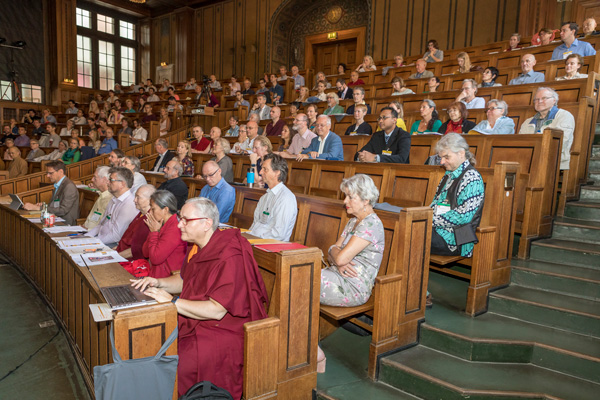
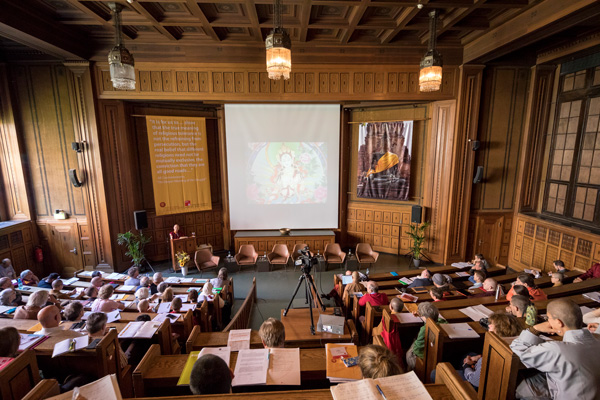
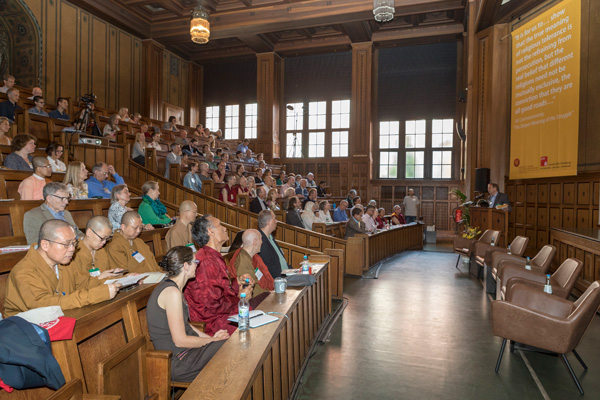
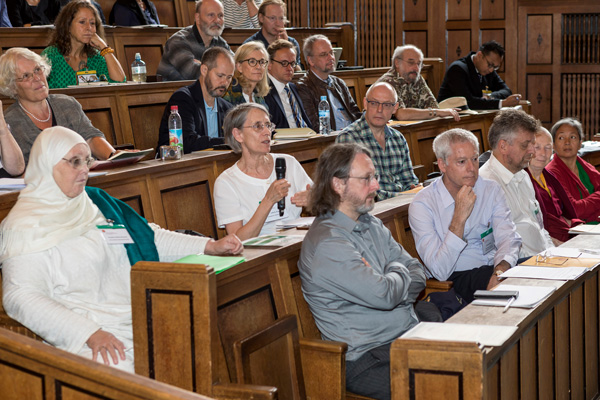
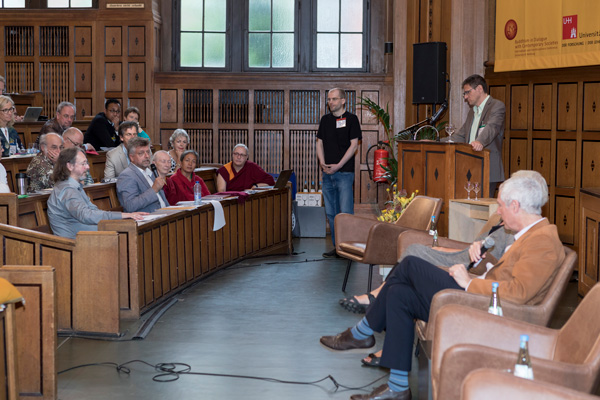
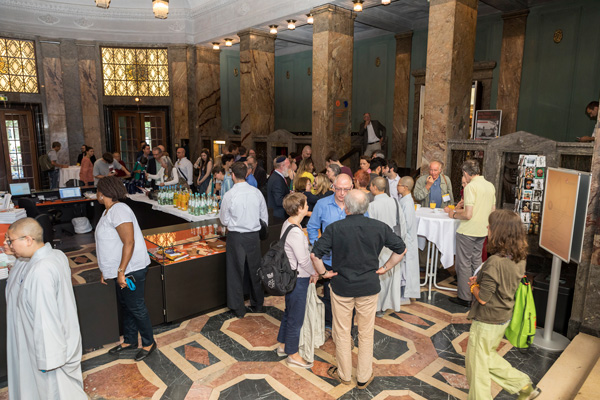
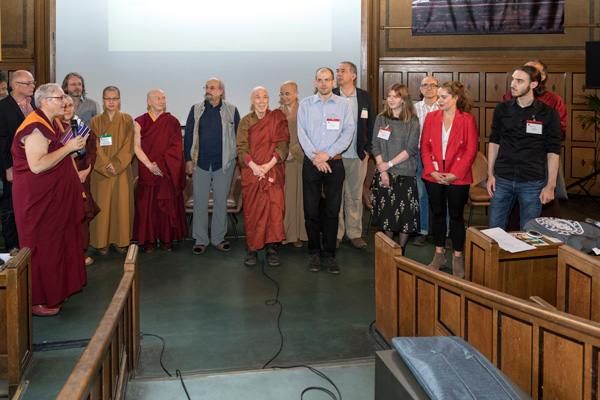
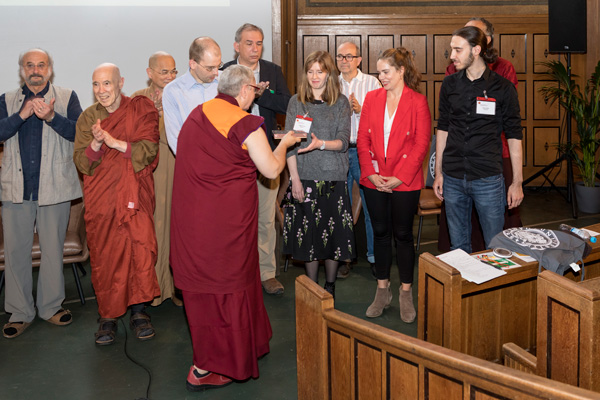
To explore these dialogical processes, this International and Interdisciplinary Conference “Buddhism in Dialogue with Contemporary Societies” brought together 24 scholars of Buddhism and senior Buddhist teachers from the three mainstream traditions of Buddhism, i.e. Theravāda, East Asian (including Zen), and Tibetan Buddhism. They addressed such questions as:
- Is Buddhism Relevant to Today's World?
- Are His Teachings and Religious Practice Suitable to Enrich Our World?
- h Our World? And, in the positive case: what could this post look like?
- Where and to what extent can and must Buddhism make compromises in the process of adapting to a western culture and where must what is considered its core teaching / practice not be touched?
- Which sociological and intercultural aspects have to be considered when introducing Buddhism into a new, non-Asian context?
- Are there any elements of Buddhism that already exist in our western heritage, perhaps in a hidden form?
- And what is really new or completely different in Buddhism compared to Western achievements or other religions and therefore needs our special attention?
- What have experts taken from their lifelong encounter with Buddhism for themselves - or perhaps missed it?
- Assuming that the Academy of World Religions at the University of Hamburg decided in the long term to offer an interdisciplinary course on Buddhism and dialogue - similar to the existing courses 'Islamic Theology' and 'Alevi Theology' - which learning objective should the students of such a course achieve and how would this be approached methodically?
Of particular interest is the extent to which Buddhism is or could be a source of inspiration for the following areas:- Social cohesion - ethics and meditation: aggression and fear, violence and peace
- Social justice and action
- Philosophy and applied ethics
- Mindfulness, psychotherapy / pedagogy, pastoral care, medical application (secular area)
- Interreligious dialogue
In order to guarantee the scientific success of the conference, the events were only accessible to an interested specialist audience from science and practice for the first two and a half days.
On the third day, the event was opened to a general audience from 2 to 6 p.m., with short contributions and workshops on Buddhism in school, mindfulness training and emotion management.
In the evening there was a public lecture on “Possibilities and Limits of Interreligious Dialogue. The Compatibility of Religion with Human Rights ”. Afterwards, a group of five scientists from the world religions and the secular area discussed with each other and with the interreligiously mixed audience.
The conference is fully documented. It is intended to publish the presented lectures and a summary of the discussion results in an anthology.
Program and Abstracts
- Congress flyer and program (PDF)
- Abstracts (PDF)
- Lecture recordings
- Videos of all lectures, panel discussions, questions from the participants and conclusion, produced by the University of Hamburg
- Youtube-Playlist: short summaries of the lectures by the speakers, created by Diane Groß
